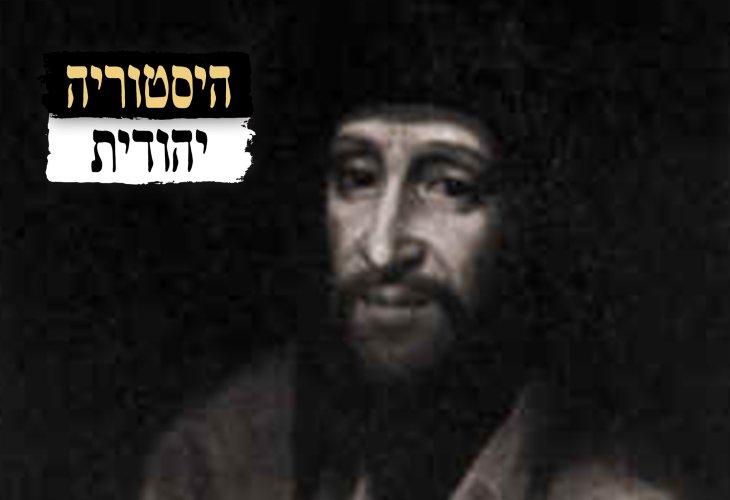A Miraculous Return: Rabbi Reunites with Wife After Being Presumed Dead
After leaving the rabbinical court, the widow Nechama declined offers from matchmakers, insisting she felt her husband was still alive. When asked if she doubted the esteemed Rabbi Heshel, she couldn't provide a clear answer but refused to remarry.
 The Wise Tzvi, Son of Rabbi Yaakov
The Wise Tzvi, Son of Rabbi YaakovVilna, 1717: The rabbinical court of the brilliant Rabbi Heshel of Krakow, the leading sage of his time and a teacher of the Shach and Taz.
The issue at hand: The fate of agunot from the massacres of 1716.
In 1716, a war known as the 'War of the Rogues' broke out. It was a conflict involving Cossacks, Russians, Tatars, and other Slavic peoples, a continuation of the 1648 Cossack uprisings. As usual, Jews bore the brunt, with many massacred during these upheavals.
Before the court appeared Nechama, daughter of Ephraim HaKohen, who was married to Rabbi Yaakov Z"K (Z"K standing for 'Zera Kodesh').
Two credible witnesses accompanied her, testifying that Rabbi Yaakov, along with other Jews from the 'Jewish Street,' were taken by the Cossacks to the forest. One Cossack stood with a large sword and slaughtered them all, one by one. The witnesses clearly saw Rabbi Yaakov struck by the sword and fall. They couldn't bury him, as they hid in a nearby cave and fled to avoid capture, but they witnessed his death with their own eyes.
Rabbi Heshel examined the witnesses and, along with his court, decided to permit the widow to remarry.
After leaving the court, Nechama returned home. Though various matchmakers pursued her, she felt uncomfortable marrying again, declaring her belief that her husband was alive. When the matchmakers questioned her trust in the great Rabbi Heshel, she had no clear answer but refused to marry.
Then, a few years later, her husband, Rabbi Yaakov, arrived in Vilna, exemplifying the phrase, 'The dead has returned on his feet.'
Rabbi Yaakov recounted: 'When it was my turn to be slaughtered, the Cossack remembered he knew me and said, "I will pretend to strike you; you fall, and they will think you're dead." And that's what happened. After some time, I got up and fled, wandering from city to city in search of my family until I reached Vilna, where I heard that my wife was still alive and well.'
When Rabbi Heshel heard this, he decided to no longer handle cases involving agunot. His students asked, 'Master, you acted correctly. According to the law, there's no reason to suspect a murderer would make such an agreement with their victim. Does this mean you will cease ruling on these matters? And, moreover, no harm was done; the woman did not remarry.' But Rabbi Heshel held firm in his decision, refusing to deal with agunot cases again due to such an incident under his purview.
Rabbi Yaakov and Nechama had a son named Tzvi, who became known as the 'Wise Tzvi,' one of the leading rabbis in Germany and later in Amsterdam. This story is recounted by his son, Rabbi Yaakov Emden, in his book "Megillat Sefer," named Yaakov after his grandfather, the hero of this tale.

